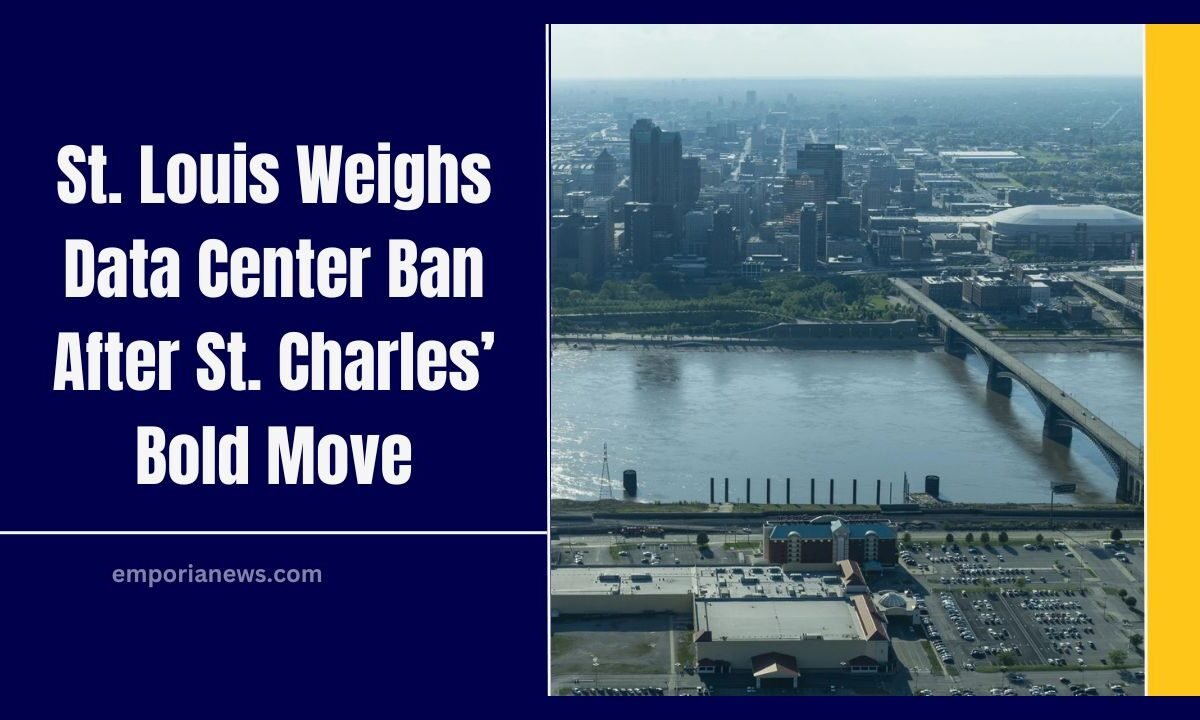St. Louis is considering imposing a temporary ban on new data center developments, following the lead of St. Charles, which recently enacted a one-year moratorium on data center construction.
The proposal, detailed in a memo by Planning and Urban Design Agency Executive Director Don Roe, argues that the city’s outdated zoning code from the 1950s cannot adequately regulate the complex land use and high energy demands associated with modern data centers.
As data centers proliferate nationwide, local leaders are grappling with how to balance technological development with community, environmental, and energy concerns.
Why St. Louis Is Considering a Ban
Roe’s memo suggests a time-limited moratorium on new data center permits while the city updates its zoning laws and drafts new regulations.
He emphasized that the current zoning code lacks provisions to manage land use, environmental impacts, and energy consumption brought by large-scale data centers.
Key concerns include:
| Issue | Description |
|---|---|
| Aging Zoning Code | St. Louis’ code, written nearly 70 years ago, does not cover data center use. |
| Energy Demand | A proposed data center in Midtown could use as much energy as 13,000 homes. |
| Land Use Conflicts | Potential risk of data centers being built in inappropriate locations. |
| Low Permanent Jobs | Data centers require very few full-time employees despite their massive size. |
| Transparency Gaps | Lack of disclosure on energy use and operational impact of large data centers. |
Roe stated that without clear regulations, data centers could be approved without public oversight, creating long-term issues for neighborhoods and utility infrastructure.
Current Data Center Landscape in St. Louis
At present, St. Louis has at least 12 operating data centers, along with a newly proposed site on Green Street near the Armory building. Roe’s proposal does not seek to shut down existing centers but to pause new approvals while rules are developed.
He outlined several possible steps:
- A full moratorium, like in St. Charles, halting all new applications
- A partial moratorium, allowing smaller projects or adaptive reuse sites
- A benchmarking ordinance update requiring data centers to report their energy consumption
- A zoning code rewrite to address site selection, environmental safeguards, and community impact
The St. Charles Precedent
The city of St. Charles passed a one-year ban on new data center applications after backlash over a secretive $1 billion project proposed near Highway 370. Residents expressed concerns about water usage, power demands, and transparency.
The developer, CRG, withdrew its application after public opposition and promised to incorporate community feedback into a future proposal. Documents later linked the project to a major tech company, sparking even more scrutiny.
St. Charles officials said the pause gives them time to create strict regulations before approving similar projects in the future.
Balancing Innovation with Regulation
While data centers are vital for digital infrastructure, they pose significant environmental and urban planning challenges. They consume massive amounts of electricity and water, generate little long-term employment, and can disrupt surrounding communities if not properly planned.
Roe emphasized that St. Louis must act quickly to avoid a flood of unregulated projects, proposing that new rules be established before the zoning rewrite is complete.
State regulators are also reviewing how utilities like Ameren and Evergy will supply power to data centers without raising rates for residential customers.
The debate in St. Louis reflects a broader dilemma facing cities across the country—how to embrace technological growth without sacrificing sustainability, public input, and urban balance.
By considering a temporary ban on new data centers, St. Louis aims to prevent rushed approvals while building a framework for responsible development.
As St. Charles’ example shows, local governments are becoming more proactive in ensuring that data center expansion aligns with community needs, environmental safeguards, and long-term planning goals.




